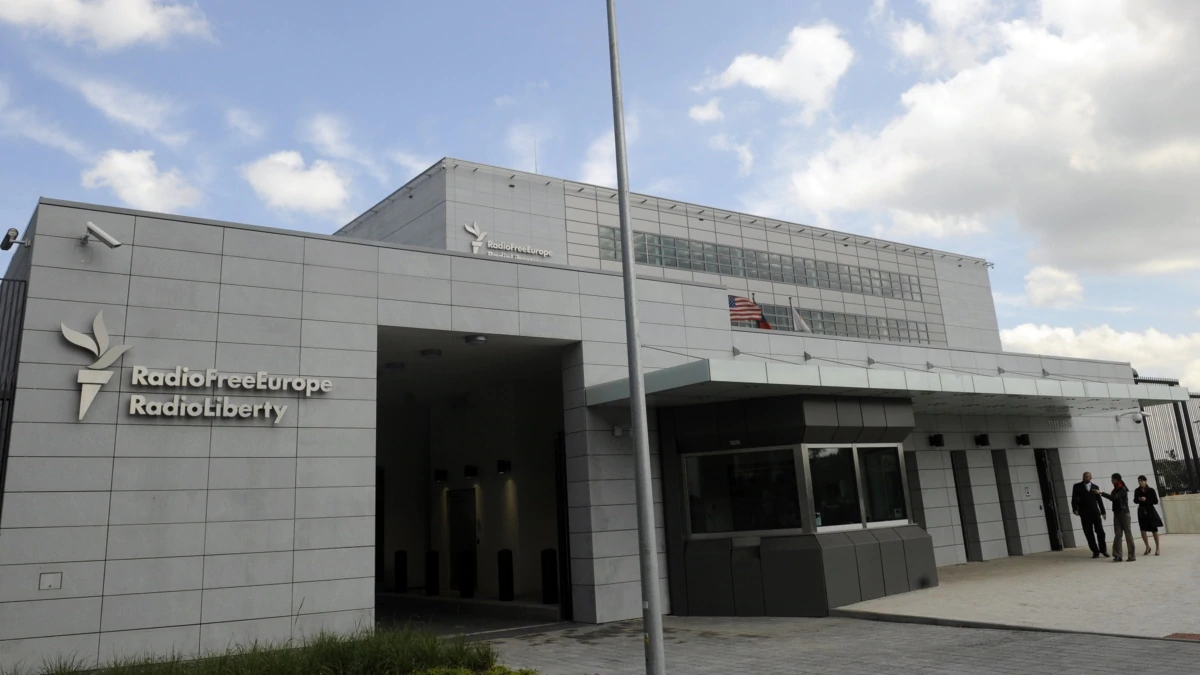
Radio Free Europe/Radio Liberty says Russia is violating a bilateral investment treaty by targeting the organization’s news operations within Russia under its controversial “foreign agent” law.
The assertion, made public by RFE/RL in a statement issued on February 11, comes as Russian regulators have hit the company with a series of fines in recent weeks.
Media regulator Roskomnadzor has demanded RFE/RL comply with strict requirements to label content published and broadcast within Russia as financed by foreign sources. Those demands include prominent 15-second disclaimers shown at the start of every television, radio, or video program, be it online or broadcast.
RFE/RL, one of three foreign news organizations to be labeled as a “foreign agent” and the only one facing fines, has not complied. In response, Roskomnadzor has served RFE/RL with 260 notices of violations. When they go through the court system in the coming weeks, the total fines levied will amount to almost $1 million.
In its statement, the company said Moscow’s move violated a bilateral investment treaty signed in 1994 between Russia and the Czech Republic that obligates Moscow to treat Czech investments in Russia fairly. It called on Russia to negotiate to try to resolve the dispute.
If Russia is not willing to do so, the treaty allows for international arbitration proceedings against Moscow, the company said.
“These punitive measures by the Russian government are a nervous reaction aimed at driving RFE/RL out of business at a time when our audience in Russia is skyrocketing,” said Daisy Sindelar, the organization’s acting president and editor in chief.
“We intend to use every legal avenue available to defend our operations in Russia, so we can continue to deliver the accurate, unflinching journalism our audiences expect and depend on,” she said.
Prague HQ
Funded by U.S. Congress, RFE/RL is a private nonprofit organization incorporated under Delaware law in the United States. RFE/RL’s global headquarters have been based in the Czech Republic since moving there from Munich in 1995, and its operations there are executed through a Czech legal entity called a “branch.”
For that reason, the company argues its investments in Russia are covered under the 1994 treaty between Prague and Moscow.
With dozens of employees in Prague, about 50 full-time staff in Russia, and close to 300 freelance reporters across the country, RFE/RL’s Russian-language operations — TV, radio, and online — make it one of the largest independent foreign news organizations within Russia.
Press watchdogs have said the effort appears aimed at closing down all of RFE/RL’s operations in Russia, which currently reach nearly 6.7 million people a week.
First passed in 2012 and expanded several times since, the “foreign agent” law gives authorities the power to brand nongovernmental organizations, human rights groups, and news media deemed to receive foreign funding for political activity as a “foreign agent,” a label that carries pejorative Soviet-era connotations.
The law subjects these organizations to bureaucratic scrutiny and spot checks and requires them to attach the “foreign agent” label to their publications. They must also report on their spending and funding.
Among other things, the law requires certain news organizations that receive foreign funding to label content within Russia as being produced by a “foreign agent.” It also puts RFE/RL journalists at risk for criminal prosecution.
RFE/RL executives have said Russian regulators singled out the organization for punishment as compared with other foreign news organizations. The only other news organizations to be hit with the “foreign agent” designation and ordered to label their content, but not yet fined, are Voice of America and a small Czech outlet called Medium-Orient — neither of which currently have a physical presence in the country.
Last month, a bipartisan group of U.S. lawmakers called for new sanctions against Moscow if the Kremlin moves to enforce the fines and stringent restrictions.
Since early in Vladimir Putin’s presidency, the Kremlin has steadily tightened the screws on independent media. The country is ranked 149th out of 180 in the World Press Freedom Index produced by Reporters Without Borders.
This post was originally published on Radio Free.